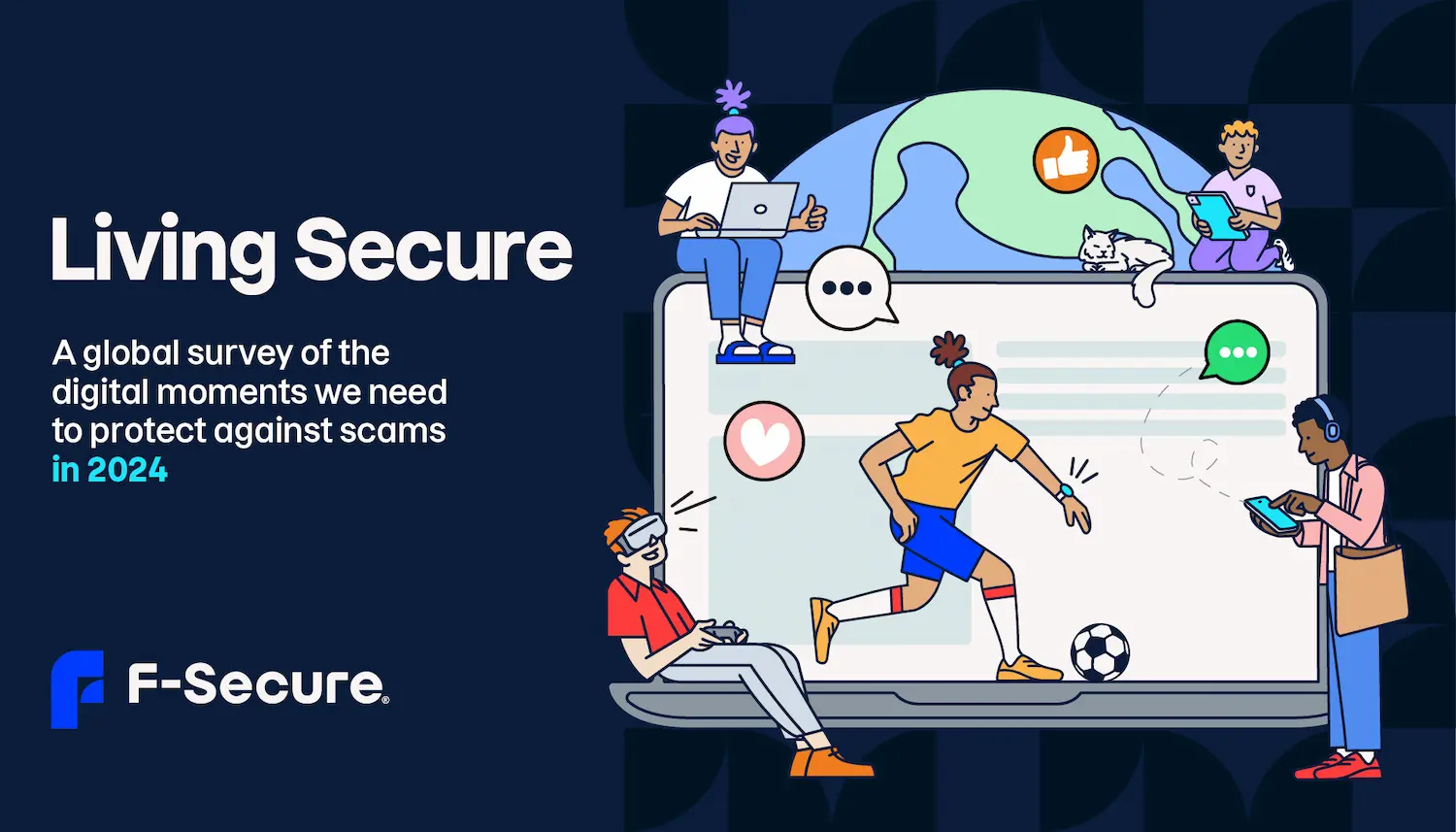For the Living Secure survey, F‑Secure wanted to study the importance and impact of digital moments in our daily lives. And the 2024 survey reveals that online worries are still prevalent, with technology like generative artificial intelligence (AI) making scams harder to spot.
“As our lives become increasingly digital, the potential impact of scams has increased in severity, incorporating not only financial loss, but also the theft of our most personal data. And in 2023, a third of people (34%) experienced a cyber scam,” says Timo Laaksonen, President and CEO at F‑Secure.
Cyber crime is on the rise
The Living Secure survey showcases how cyber crime has never been more prevalent: 85% of our survey respondents said they had received a digital scam attempt, with 4 in 10 people receiving them on a weekly basis. And of the 7,000 people we questioned, 36% said that they get more scam attempts now than they did just 12 months ago.
“Scams pose a unique threat to our online lives. Modern day scamming employs both the manipulation tactics that appeal to our emotional sides with the readily available technology to deliver them,” explains Laura Kankaala, Head of Threat Intelligence at F‑Secure.
We don’t feel any safer
According to the latest Living Secure survey, the things that made us feel vulnerable two years ago are the same today, with 80% of us worrying about our online safety. And the companies working in areas such as online gambling, dating, banking, smart devices, shopping, gaming, and social media haven’t done enough to make us feel any safer.
In fact, in some cases — notably online dating, gambling, shopping, and social media usage — the feeling of vulnerability has increased.
Sadly, despite spending more time online, the Living Secure survey illustrates that we don’t feel any safer than we did two years ago. In fact, concerns have increased since 2022 — 8 in 10 people now worry about online safety. And more than half of us (54%) have no idea if our devices are secure.
“Consumer trust is plummeting due to an explosion of scams and uncertainties about online security,” says Paula Al Soufi, Director of Portfolio Strategy at F‑Secure. “People are increasingly unsure about who to trust, whether their devices are secure, and how they can protect themselves online.”
Get the right protection
Today, we’re seeing how our digital moments — if not properly protected — can provide the perfect vehicle for scams to happen. We’re now more exposed to scammers’ tactics than ever, with over three quarters of us using social media on a weekly basis (76%) and generative AI making it harder than ever to spot scams, misinformation, and fake news.
“In 2023, we saw a rise in shopping fraud delivered through fake ads on social media,” explains Yik Han, Researcher at F‑Secure. “In 2024, this type of fraudulent advertisement will grow to new heights with the use of generative AI, making it hard to differentiate between fake and real ads.”
Ultimately, our findings show that effective consumer cyber security starts with education around scams, as well as the right protection.
)
)
)
